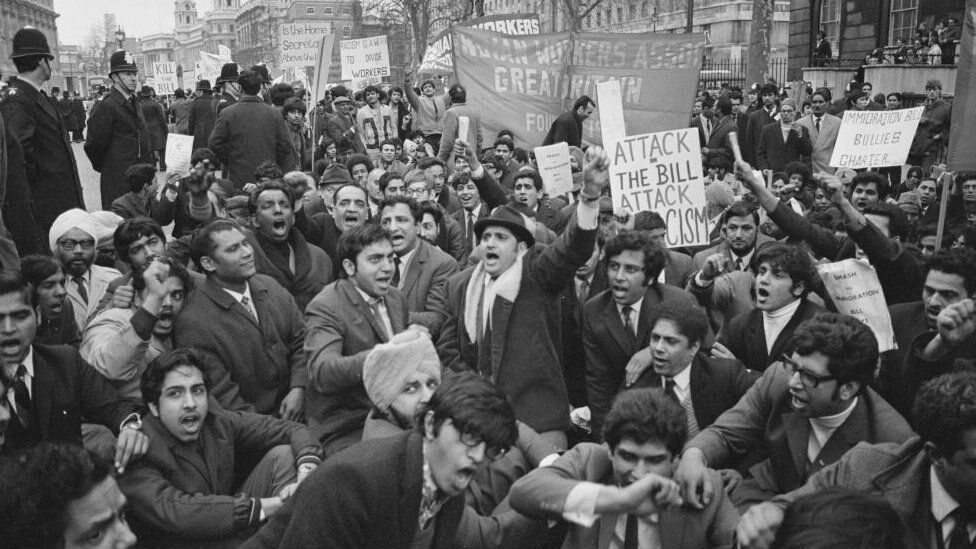Afghan Labour, Colonial Borders: Regulating Migration in British and Princely India
Colonial India depended on Afghan migrant labour, at the same time as it regulated and expelled them in its border-making projects.
Syama Prasad Mookerjee: Death and Martyrdom in Hindutva Myth-Making
An examination of the significance of the founder of the Bharatiya Jana Sangh—predecessor to the ruling Hindutva-fascist party in India, the BJP.
A Tale of Two South Asian Americas
An exploration of the Bangladeshi American activism scene provides a glimpse into how the South Asian American political landscape continues to expand and change.
Caste, Race & the Left in Post-War Britain
An interview with a Dalit leader of the Indian Workers’ Association (IWA) on casteism and racism in post-war Britain, Black-Dalit solidarity, and reconciling Ambedkar and Marx via Mao.
State Violence in Canada: Police Attacks Community Demanding Justice for Ejaz Choudry
Seven community members arrested for protesting the “reasonable” murder of Choudry, a 62 year old Pakistani-Canadian killed by Police in June 2020.
Language for Liberation: The Class Struggle Behind Ekushey (21st) February
February 21, 1952 remains one of the most significant dates in the history of Bangladesh, a landmark day in the context of the 1971 liberation war. To understand how the Bhasha Andolan (Language Movement) became a mass uprising, we must look at the class struggle that led up to the movement.
The Sindhiyani Tehreek: Revolutionary Feminism in Sindh?
With the revival of Pakistan’s feminist movement, Memon recovers one of the country’s less-appreciated women-led organizations—one rooted in the peasantry, not the urban middle-class.
Kamala Harris’s “American Journey”: Caste, Global Mobility & State Power
As the Democratic VP nominee Kamala Harris is celebrated by South Asian communities, Kohli reflects on intertwined caste, class and imperial forces fueling her ascent to global power.
Orientalizing Environmentalism: Green Movements in India
Millenial-led environmental movements in India fall prey to imitating their Western counterparts. If environmentalism is to have any success in the country, we need a more vernacular environmentalism.
Pandemics and Hunger: Lessons from the 1918 Pandemic in India
It wasn’t the influenza virus alone, but the agricultural exploitation imposed by colonialism which devastated India in 1918.
No Harm Here is Still Harm There: The Green New Deal and the Global South (II)
A GND which fails to challenge the hegemony of growth-led development perpetuates the exploitation of the Global South and will be unable to prevent global ecological social collapse.
No Harm Here is Still Harm There: The Green New Deal and the Global South (I)
Without accounting for globalized production, a Green New Deal in the Global North will merely spur the imperialist quest for cheaper resources and labour to satisfy “eco-friendly” consumption.












